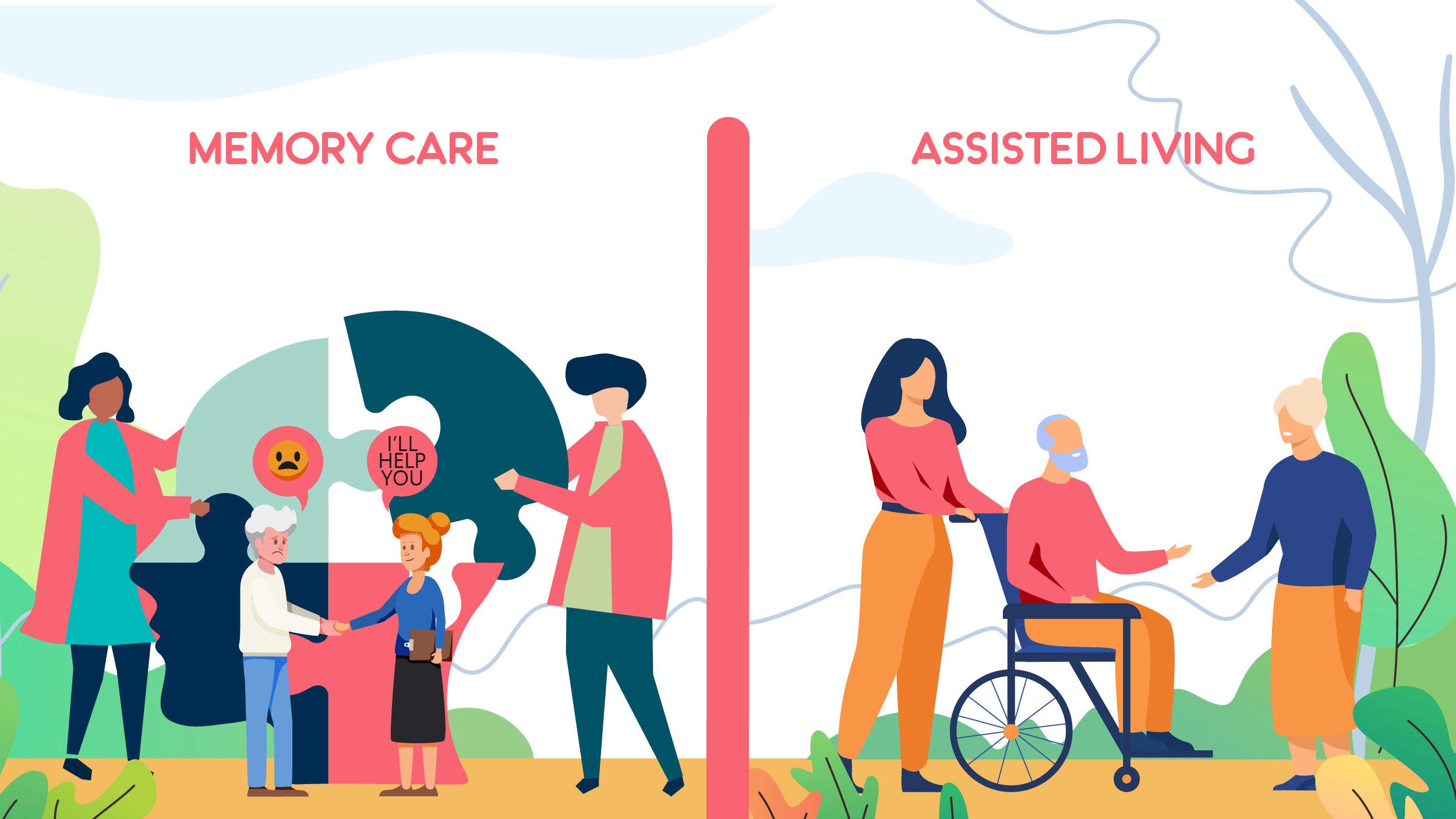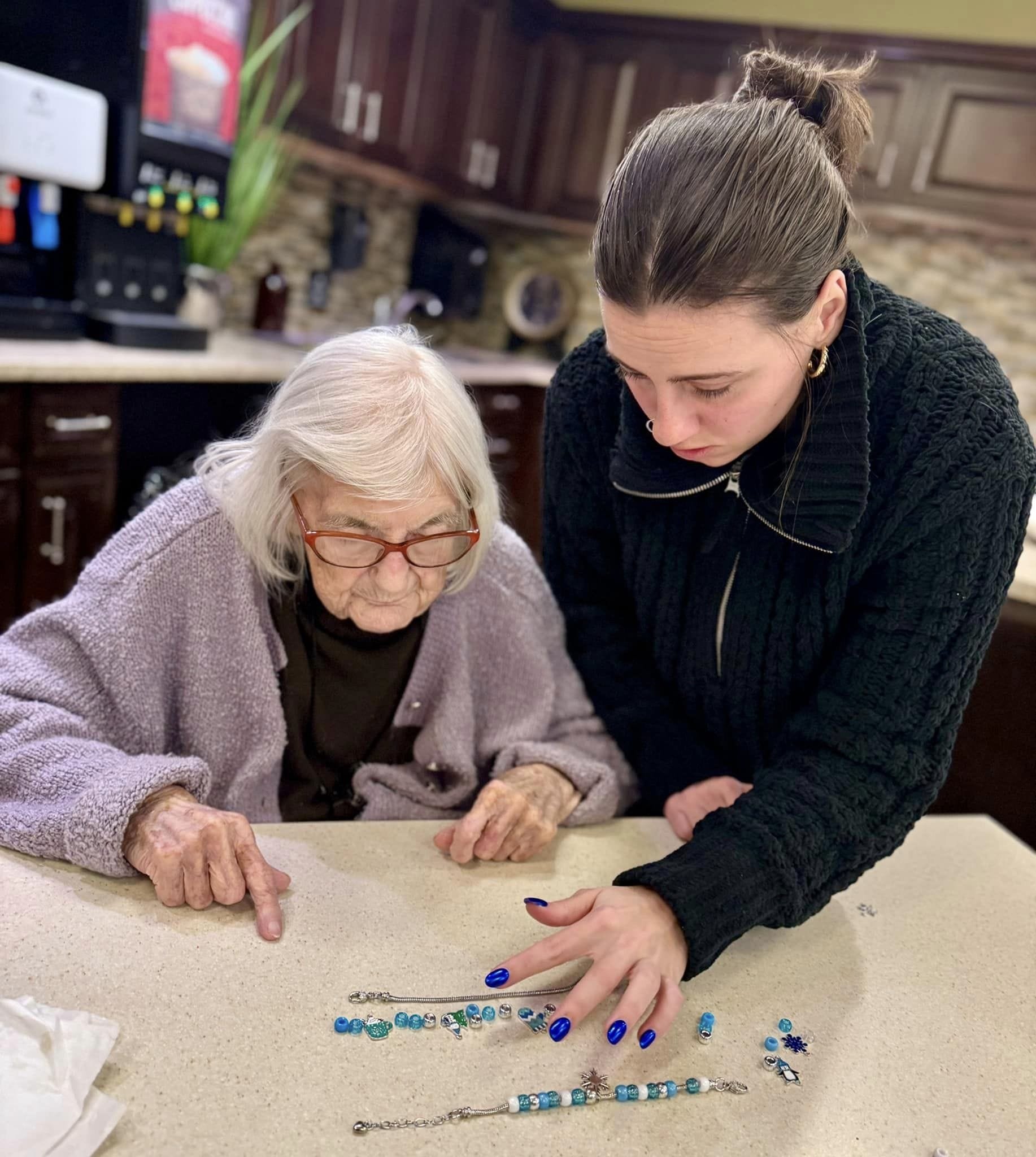Producing Safe and Comfortable Areas with Alzheimers Care Charlotte Programs
Producing Safe and Comfortable Areas with Alzheimers Care Charlotte Programs
Blog Article
Producing a Safe and Supportive Setting for Alzheimer's Treatment
The development of a risk-free and supportive atmosphere for individuals with Alzheimer's is critical in improving their quality of life. This entails not just physical adaptations within the home, such as reducing threats and incorporating acquainted aspects, yet additionally the execution of organized regimens and meaningful tasks that cater to their cognitive demands. Moreover, comprehending the psychological and psychological dimensions of care can dramatically influence their sense of security and connection. Discovering these multifaceted techniques can reveal important understandings into efficient caregiving approaches that may transform the day-to-day experiences of both caregivers and clients.
Comprehending Alzheimer's Demands
Frequently, individuals with Alzheimer's illness exhibit a series of requirements that call for customized strategies to care. As the problem progresses, cognitive decrease shows up in various ways, influencing memory, thinking, and also the capacity to execute daily activities. Caregivers must acknowledge these developing requirements to provide ideal support and guarantee a higher top quality of life for those affected.
One crucial facet of understanding Alzheimer's requirements is identifying the importance of regular and experience. People frequently find comfort in well established patterns, which can reduce anxiety and confusion. Caregivers should make every effort to develop structured daily schedules that include purposeful activities lined up with the individual's interests and abilities.
Additionally, efficient interaction is extremely important. Individuals with Alzheimer's might have a hard time to express themselves or comprehend complex language. Caregivers need to utilize easy, clear language, use non-verbal hints, and method active paying attention to cultivate understanding and connection.
Finally, psychological and social needs can not be neglected. Supplying opportunities for social communication and preserving relationships can dramatically improve emotional health. Caretakers need to encourage involvement in community tasks or family members celebrations, promoting a feeling of belonging and purpose. Recognizing these varied needs is necessary for producing a supportive treatment environment.
Designing a Safe Home
Creating a risk-free home for individuals with Alzheimer's condition is vital to promoting and reducing threats independence. The style of the living area need to focus on security while permitting personal comfort. Eliminate possible dangers such as loosened carpets, sharp objects, and mess, which can lead to falls or mishaps. Make sure that pathways are well-lit and clear, as correct illumination reduces disorientation and enhances wheelchair.
Incorporating adaptive functions is additionally vital. Set up grab bars in shower rooms and near stairways, and take into consideration using non-slip mats in damp areas. Additionally, using contrasting colors for floors and wall surfaces can assist in distinguishing areas, helping to reduce complication.
Familiarity is very important for people with Alzheimer's. Personalizing the atmosphere with familiar objects and photographs can reinforce a feeling of belonging and security - Alzheimers Care Charlotte. It is additionally beneficial to have actually a designated location for everyday activities, such as reading or crafting, which can provide framework to their day
Finally, applying a protected exterior area allows for risk-free exploration while linking with nature. By attentively designing the home atmosphere, caretakers can considerably improve the top quality of life for individuals coping with Alzheimer's illness.
Enhancing Communication Abilities

Non-verbal site web interaction, including faces, gestures, and touch, plays a critical role in conveying empathy and understanding. Preserving eye call and a calm demeanor can enhance the convenience degree of the individual, promoting a sense of safety.
Additionally, it is vital to exercise active listening. This includes being completely present, revealing persistence, and allowing the person to reveal themselves without disturbance. Rep might be needed; caregivers ought to be prepared to review inquiries or subjects, as people with Alzheimer's might deal with memory recall.
Additionally, making use of aesthetic help or cues, such as photographs or acquainted items, can promote acknowledgment and engagement. Ultimately, improving interaction abilities is regarding developing trust fund and producing an environment where people really feel listened to, valued, and recognized, consequently improving their lifestyle.
Encouraging Social Communication
Cultivating significant social communications can substantially boost the well-being of individuals with Alzheimer's illness. Involving with others not just aids fight sensations of isolation but additionally boosts cognitive feature and psychological health. Structured social activities, such as group video games, crafts and arts, or music therapy, develop possibilities for homeowners to attach with peers and caregivers, which can result in enhanced mood and decreased stress and anxiety.
Producing an inviting setting that urges socializing is vital. This can be achieved by organizing communal rooms that assist in interaction, such as comfy seating locations or activity spaces. Additionally, integrating culturally appropriate and familiar tasks can trigger memories and motivate participation, enabling people with Alzheimer's to feel even more linked to their previous experiences.
In addition, caregivers must be trained to recognize and promote social engagement amongst residents. Straightforward motions, such as initiating discussion or assisting in tiny team conversations, can aid individuals really feel valued and included. Frequently set up social use this link events ought to be regular yet flexible, suiting varying levels of capacity and interest. By focusing on social communication, we can dramatically improve the lives of those dealing with Alzheimer's, promoting a feeling of community and belonging.
Supporting Caregiver Well-being

To support caregivers, organizations must supply normal training and instructional sources to boost their understanding of Alzheimer's disease and caregiving methods. Providing access to break treatment services enables caretakers to take necessary breaks, reducing tension and tiredness - Alzheimers Care Charlotte. Furthermore, fostering an area through support system can assist in emotional sharing and the exchange of functional advice among caretakers, developing a network of this website mutual support
Psychological health and wellness resources, such as counseling services, can also be vital in dealing with the psychological toll caregiving can take. By focusing on caretaker well-being, we produce a more lasting caregiving setting that not only benefits the caretakers themselves but additionally boosts the overall top quality of treatment obtained by people with Alzheimer's. Inevitably, supporting caretakers is a vital component in fostering a efficient and compassionate treatment setting.
Verdict
To conclude, the creation of a safe and supportive atmosphere for individuals with Alzheimer's is essential to improving their lifestyle. By prioritizing security via thoughtful style, cultivating psychological wellness with acquainted aspects, and promoting interaction through structured routines, caregivers can considerably affect the total experience of those impacted by this condition. Sustaining caregiver well-being is critical, as it ultimately adds to a much more effective and compassionate treatment environment.
Repeating may be necessary; caretakers need to be prepared to revisit subjects or concerns, as individuals with Alzheimer's may have a hard time with memory recall.

Report this page